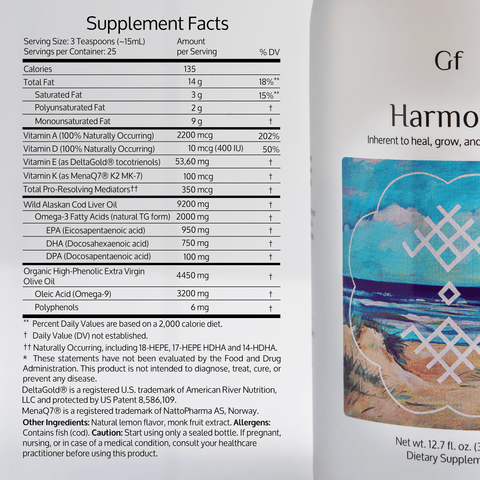Cod liver oil has long been prized for its wealth of health benefits, particularly as a rich source of Omega-3 fatty acids (EPA and DHA) and vitamin D. Among the myriad claims made about cod liver oil, one popular belief is its efficacy in promoting joint health and alleviating symptoms associated with joint disorders. But how much of this is based on solid evidence? Let’s dive into what the science says about the potential benefits of cod liver oil for joint health and mobility.
Why Omega-3s in Cod Liver Oil Matter for Joints
Cod liver oil’s Omega-3 content plays a critical role in joint health due to its potent anti-inflammatory effects. Inflammation is one of the main drivers of joint pain and discomfort in conditions such as osteoarthritis and rheumatoid arthritis. Studies show that EPA and DHA may help reduce inflammatory cytokines, proteins that trigger inflammatory responses in the body.
A study published in The Mediterranean Journal of Rheumatology found that Omega-3s can decrease morning stiffness and improve grip strength among individuals with rheumatoid arthritis, enhancing overall joint function. This study also noted that participants taking Omega-3 supplements experienced reduced joint tenderness and swelling, highlighting Omega-3’s role in alleviating joint pain (source: PubMed).
 The Role of Vitamin D in Joint and Bone Health
The Role of Vitamin D in Joint and Bone Health
Cod liver oil is also one of the best natural sources of vitamin D, essential for bone health and the prevention of joint-related conditions. Vitamin D aids in calcium absorption, which strengthens bones and may prevent joint-related issues stemming from weak bones or bone deformities. Vitamin D deficiency is commonly linked to increased risks of osteoporosis and osteoarthritis, particularly in older adults.
Research done by the Medipol Universty Hospital from Turkey points to a strong association between vitamin D deficiency and joint pain, especially in the knees and hips. Adequate levels of vitamin D may help reduce knee pain and improve physical function in individuals with osteoarthritis (source: PubMed).
Cod Liver Oil and Rheumatoid Arthritis
Rheumatoid arthritis is an autoimmune condition marked by chronic inflammation of the joints. Cod liver oil’s combination of Omega-3s and vitamin D makes it particularly beneficial for people with rheumatoid arthritis. The anti-inflammatory properties of Omega-3s are known to reduce symptoms in patients with autoimmune diseases, while vitamin D is essential for immune regulation, which may help control autoimmune responses.
A study done by State University Groningen from the Netherlands examined the effects of fish oil supplementation in patients with rheumatoid arthritis and found that those who supplemented with Omega-3s experienced a reduction in the number of painful and tender joints. The study suggests that cod liver oil’s natural Omega-3 content can be a valuable complementary approach in managing symptoms of rheumatoid arthritis (source: PubMed).
 Can Cod Liver Oil Help with Osteoarthritis?
Can Cod Liver Oil Help with Osteoarthritis?
Osteoarthritis is another joint disorder characterized by the gradual wear and tear of joint cartilage. While there is no known cure for osteoarthritis, managing inflammation can help reduce pain and improve mobility. Cod liver oil’s Omega-3s play a role here, potentially slowing down the progression of cartilage degeneration and providing pain relief.
A study published in International Journal of Rheumatology reported that Omega-3s might help inhibit the production of certain enzymes responsible for breaking down cartilage, slowing osteoarthritis progression. This suggests that regular intake of Omega-3-rich oils could reduce inflammation markers in patients with osteoarthritis, contributing to reduced pain and improved joint function (source: PubMed).
Other Potential Benefits for Joint Lubrication and Flexibility
Cod liver oil is often promoted as a natural “lubricant” for joints due to its Omega-3 content. Omega-3 fatty acids are known to influence the production of synovial fluid, which provides lubrication for joint movement and helps reduce friction between bones. While research is ongoing, some studies suggest that Omega-3 supplementation may support joint flexibility and reduce stiffness.









